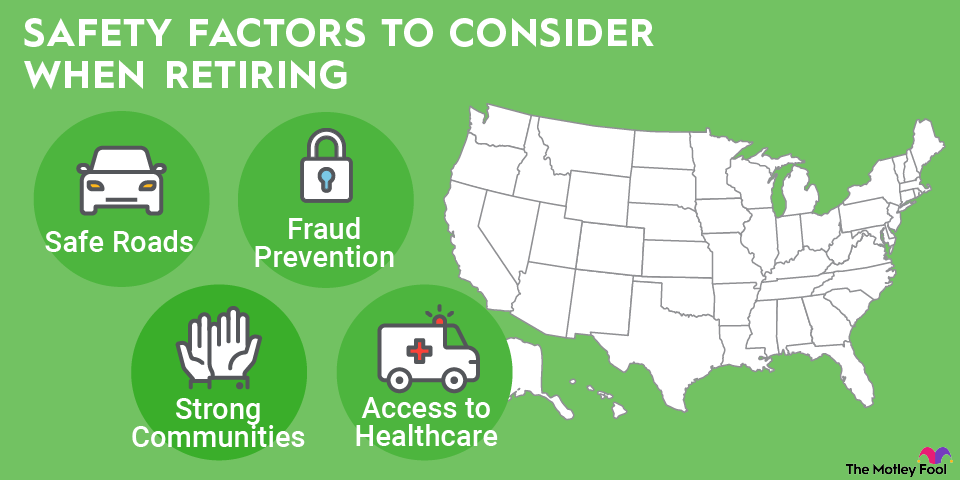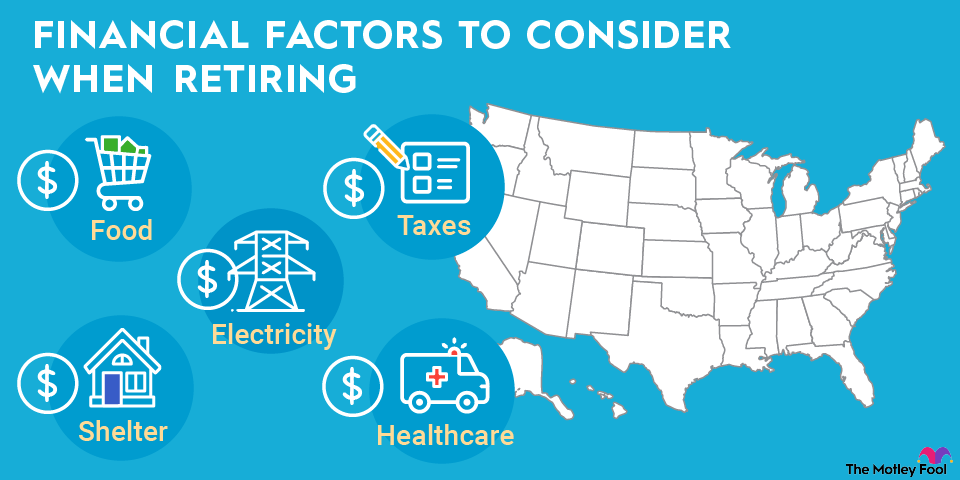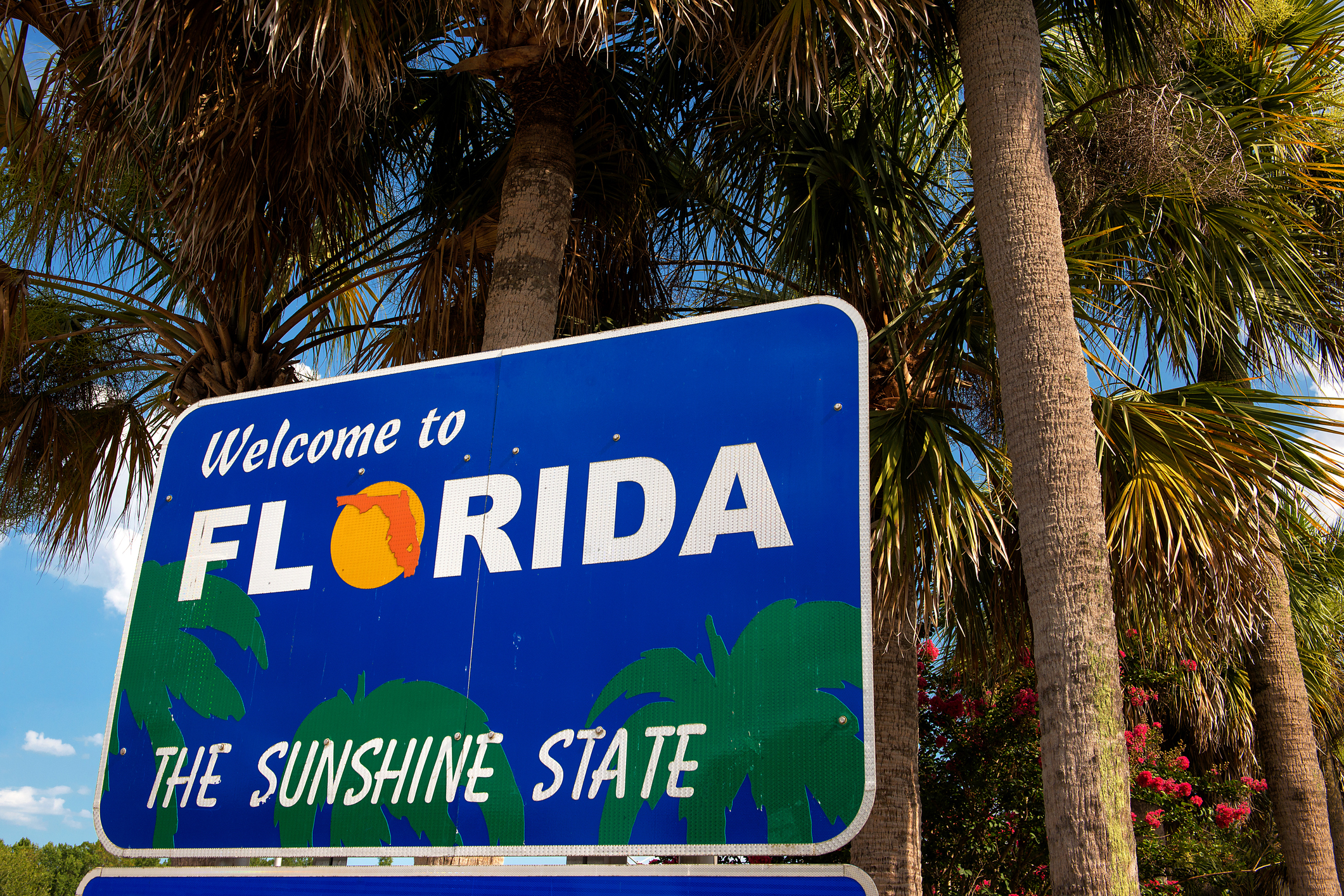The best states to retire for tax benefits are the ones that offer a range of lower taxes -- or none at all -- on income, property, sales tax, or inheritance. Although there's no avoiding federal tax, you can significantly lower your expenses by retiring to a state that's more tax-friendly.
It may not be the only factor or even the most important one when retirement planning. However, it could make a big difference in how much money you can spend in retirement and your overall quality of life.

Most tax-friendly states for retirement (alphabetically listed)
1. Alabama
One of several Sunbelt states on the list, Alabama retirees benefit from no state income tax on Social Security and pension income, the lowest median property taxes as of 2024, and no estate or inheritance tax.
However, non-retirement sources of income are subject to state income tax, which ranges from 2% to 5% based on income, and the average sales tax rate of 9.44% is one of the highest in the U.S.
2. Alaska
One of nine states with no income tax, Alaska also doesn't have estate or inheritance taxes. Alaska's median property tax of $4,117 in 2024 is on the higher end of this group. However, the state's Permanent Fund Dividend, paid to residents and funded primarily from oil and gas production on state land, was $1,702 that year.
Alaska has a very low average combined state and local sales tax rate of 1.82%, making it a tax-friendly destination for retirees.
3. Florida
The Sunshine State is a popular place for retirees -- and for good reason. It has no individual income tax on any income, with median property taxes on the lower end (plus longtime residents can qualify for a large exemption), and its average sales tax rate of 7.02% is lower than that of many states with low or no income tax. It's also favorable for heirs, with no estate or inheritance tax.
4. Iowa
The Hawkeye State transitioned to a flat income tax of 3.8% and completed the repeal of its inheritance tax in 2025. It also has no estate tax, and residents 55 and older don't pay income tax on retirement income.
Iowa's property tax rate is on the higher end, though lower property values offset the median property tax bill. If you intend to own a higher-value property, you may want to factor in a higher tax bill.
5. Nevada
With some of the lowest property taxes in the country, no state income tax, and no inheritance or estate taxes, Nevada is a state that plenty of people love to retire to.
It does have some of the highest state sales tax rates, although groceries and prescriptions are exempt. On balance, there are several tax advantages for retirees in Nevada.
6. New Hampshire
The Granite State has no state tax on regular income and no tax on Social Security or pensions. New Hampshire previously taxed interest and dividend income, but repealed that tax in 2025. There is also no state sales tax, estate tax, or inheritance tax. However, New Hampshire has some of the highest median property taxes and property tax rates in the U.S.
7. South Dakota
The Mount Rushmore State is one of a handful of states with no income tax, a benefit that is particularly beneficial for retirees. It also has no inheritance or estate tax and a relatively low combined average state and local sales tax rate of 6.11%.
Relatively low property values mean a lower median property tax bill, but its effective property tax rate of 1.02% is on the higher end. That's an important consideration if you're likely to own a high-value property.
8. Tennessee
One of the most tax-friendly states, even from this list, the Volunteer State has no state income tax, no estate or inheritance tax, and one of the lowest median property tax bills and property tax rates in the country.
You may end up paying more on sales tax, though. Tennessee charges a 7% state sales tax, while local sales tax can be another 2.75%. The average Tennessean pays 9.61% in sales tax, the second-highest rate behind only Louisiana.
9. Texas
The Lone Star State doesn't have an income tax, estate tax, or inheritance tax. Texas is one of the most expensive states for property taxes, and its combined state and local tax rate of 8.2% is also on the higher end. Still, no income tax and affordable housing make Texas a great place to retire.
10. Wyoming
While it's 10th on our alphabetical list, Wyoming is one of the -- if not the -- most tax-appealing states for retirees to consider. Not only does it lack state income tax on any source of income, but it also has no estate or inheritance tax.
The Equality State also has one of the lowest effective property tax rates in the U.S. and a very appealing 4% state sales tax. The average 5.56% combined sales tax rate makes Wyoming one of the most tax-friendly states for retirement.
Tips for retirement planning
Here are a few pieces of advice to consider while deciding on the best state to retire.
1. Think about the big picture
Taxes are a big deal when you're on a fixed income or stretching a nest egg out across many years, but it's not the only important factor. Consider also proximity to friends and family, climate, available activities, and the opportunity to make social connections in the state you choose.
2. Find out how much it will cost
Sometimes in our rush to save money, we can spend more than we saved to make it happen. Be sure to calculate relocation expenses and increased travel costs if you plan to return to visit family. Also, be sure to consider the differences in energy, insurance, and other living expenses compared to your current location.
3. Make sure the tax benefits add up for you
This is part of the prior tip, but it's a reminder to do the math, and then do it again. Ensure your calculations are based on conservative, real-world numbers, aligning with the rest of your retirement plans.
4. Give it a test drive
Just as nobody buys a car without taking it for a spin around the block, it's worth doing the same with a major relocation to a new state. Instead of fully committing, consider finding a short-term rental in the area you want to settle, then spending a few weeks or more there to see if it meets your expectations.
Related investing topics
Should you consider these states for retirement?
Each of these tax-friendly states to retire in offers something for just about every retiree. Factors to consider include your sources of income and how much you expect to spend, including on a property and everything else you'll need.
For example, if boating is a big part of your retirement plans, you may want to consider fuel and excise taxes, which can vary significantly from state to state. Do you intend to leave a large estate behind to your heirs? The size of the estate and who will inherit it could also be important factors to consider if you want to minimize or avoid estate and inheritance taxes.
Remember that it's a balancing act: No state is likely to have a perfect tax regime for you. Factor in each of the different taxes to make the most of your retirement income and wealth while also settling in a place where your family will be happy.





